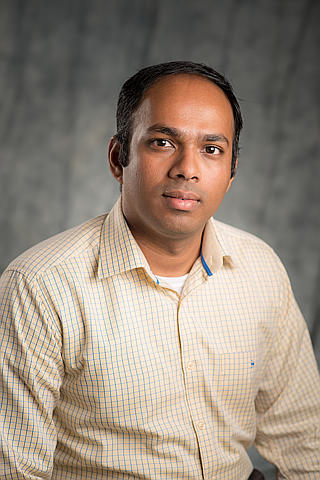Aditya Ashok
Seminar Information

With increasing levels of penetration of renewable generation and distributed energy resources (DERs) across the bulk transmission and distribution systems, there is an increasing reliance on fast acting controls, protection, and communication to keep the grid operating reliably and securely. Under this context, it is extremely important to leverage high-fidelity cyber-physical testbed environments in order to study and understand the behaviors of distribution/microgrid systems and subsystems at scale over a wide-range of off-normal conditions. Specifically, it is essential to develop high-fidelity component and system models to simulate the various power electronics based DERs such as PV inverters, battery energy storage systems, and dynamic loads. Additionally, it is also critical that the testbed environment also includes the associated controls, protection, and communication elements appropriately so that the overall resilience of these distribution/microgrid systems can be accurately studied and quantified. To this end, this presentation will talk about PNNL’s powerNET testbed architecture, the associated model development efforts for a microgrid test system, the experimental use cases that we have considered, the cyber-physical datasets generated, as well as our approach to build scalable models for validating resilient controls for larger distribution systems/microgrids.
Ashok Aditya is a senior research engineer in the Electricity Security group at PNNL. His research interests broadly include power grid cybersecurity, cyber-resilient power grid monitoring, protection, and control applications, cyber-physical situational awareness, and cyber-physical testbed-based experimentation and validation with the goal of enhancing the overall resilience of energy delivery systems to all hazards. At PNNL, he is heavily involved in the design and development of high-fidelity, real-time cyber-physical system testbeds and leveraging them to perform hardware in the loop experimentation across a range of use cases such as control prototyping and validation, cybersecurity and resilience evaluation, situational awareness, and training exercises. He holds a PhD in Electrical Engineering from Iowa State University and is a senior member of the IEEE.
